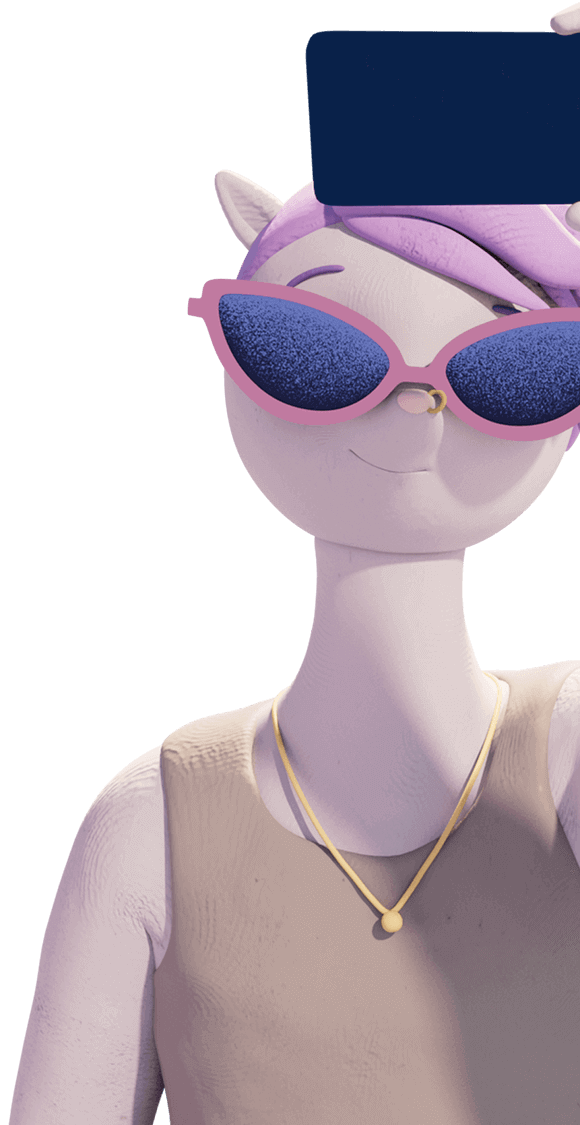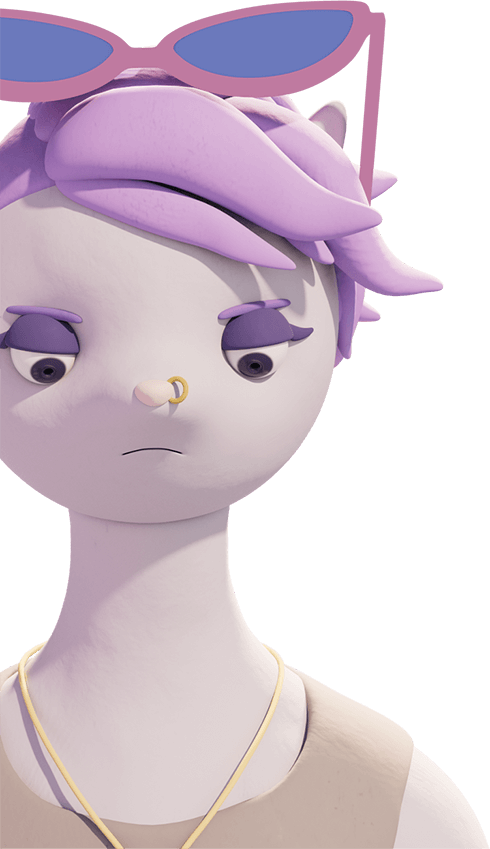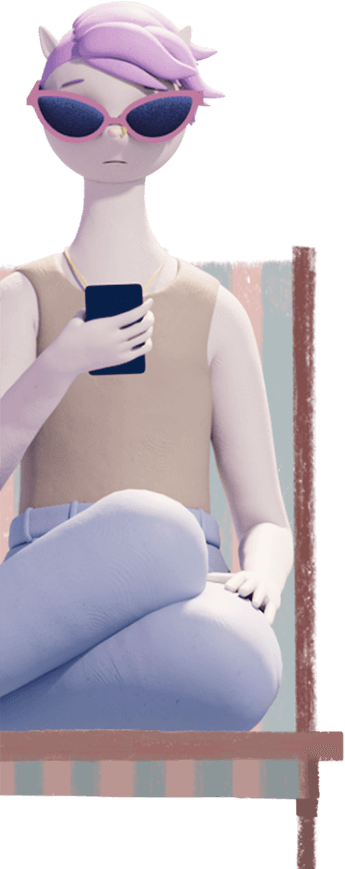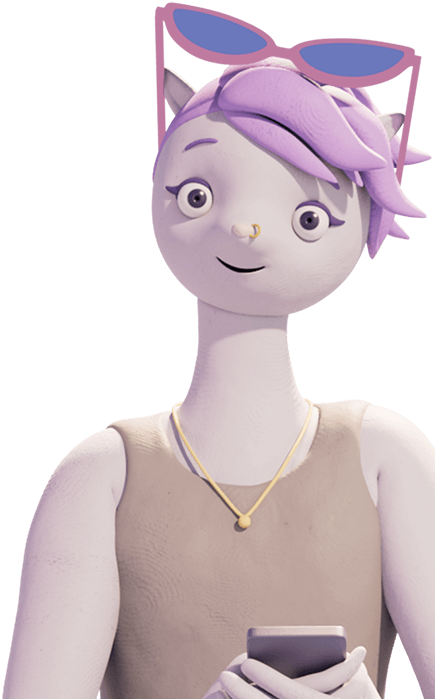Social media
“I can’t stop comparing myself to people on social media, even though I know it’s all fake!”
Social media is so engaging; I just can’t stop checking my feeds and notifications, even though I know that it’s not healthy! I love social media, it’s a great way to stay in touch and share with friends, but recently I feel like I’m just continually scrolling though a swamp of nothingness and feeling really unhappy doing it. What’s up with me?
Alex


What’s the issue?
We use social media all the time. Nowadays it would be weird not to. Social media is great for feeling connected to friends and sharing content.
Do we spend too much time online? Sometimes. The design, the colours, the pings, notifications, and other features are too inviting, too persuasive to resist. Social media has so many benefits but it can also be a lens that we start to judge ourselves through – and this can affect our mental health.
The other worry about social media and mental health is around how much it can make you compare your life, your appearance, and your achievements with everybody else’s. You might be feeling really great about something you’ve done, or what you’re wearing, but then you catch sight of someone else’s post, and suddenly you’re re-examining yourself, and maybe feeling a little less confident. It’s hard. It can be undermining, and it can chip away at your self esteem.

Constantly comparing myself to everyone else is exhausting!
How does it affect me?
The more time we spend using social media, comparing ourselves to other people, the less satisfied we can feel with our everyday life... but it is so difficult not to check your phone every 5 minutes! Just a quick look to check if my friend has answered the text I just sent her.... just a quick look and you are hooked again – even if you know it’s not doing you any good.
From an early age, young people learn to fit in, join the party, gain acceptance through social media. The fear of missing out can bring anxiety, and keeping or maintaining your preferred identity and networks through social media can be hard work. This in itself can also cause low self-esteem and poor mental health.
You can feel highly pressured (often by peers) to share opinions, personal information, and photographs. This may be encouraged through rewards (from friendship to fame), a sense of duty to communicate with others, and a desire to feel special and validated (sometimes by the number of followers and friends you collect, the likes and shares). You may feel a huge pressure to be a different, better (but fake) version of yourself - you’re not alone in experiencing this, but try to resist engaging if you can.
We know that excessive reliance on digital technology with all those unrealistic expectations from the world increases depression, social withdrawal, self-neglect, poor diet, and family conflict! We know that social communication and the quality of human interaction reduces as we rely on and use more digital technology.
We don’t have all the answers about how best to look after ourselves in social media yet, but a balance is important. Focus on the good and uplifting bits, and try to reduce or avoid negative people, comments and comparisons wherever you can.

Right! Those notifications are going OFF! I need more calm in my life…
What can I do to help myself?
Navigating the pitfalls of social media is luckily something we can all learn, though it isn’t always easy.
Moderate your social media
Moderation with social media is key. Even when things are nice to do, and social media can feel like that, consider putting in some checks and balances to avoid it starting to eat into your real-world life. Set yourself time limits, and make sure you break up the day with other activities.
Drop those pings!
Do yourself a BIG favour and turn off notifications that ping you into checking your phone every few minutes. Think who is in control. Is it you or the ping? Pings stop or interrupt balanced activities throughout the day. They can block healthy sleeping.
Learn online safety and data literacy
Take serious approaches to managing the ‘wild beast’, social media. Start with reviewing your privacy settings of the platforms you use to ensure you share your data only with those people you want. The platform will probably share the content you upload (text, images, voice messages) with third parties for commercial purposes and advertisement so you consider buying more products. This practice is called personalisation and helps companies to fish for your attention and sell you stuff.
Be positive
Follow positive and uplifting feeds and people that make you laugh, smile or feel happy. These may be comedy, travel posts or related to activities you love, but try to make sure they are not competitive or making you compare yourself with them.
Try to bring the positive to social media; make nice comments, don’t engage in criticism or arguments online, and lift people up when you can. You might be the difference between someone having a really good or a really bad day online!

When do I need to get help?
If you find that the tactics for reducing any pressure from social media on your time and attention to other important aspects of your life are not working, you find yourself becoming isolated from other people or if you are subjected to shocking, threatening or otherwise disturbing social media now is the time to share what is happening to other people you can trust.
If the negative comparisons are getting too much, undermining your self esteem and confidence and stopping you living your life the way you want to, or doing the things you want to, it's also time to seek support.



Where to go for help?
If social media causes you mental distress, then you should consider speaking to your doctor or someone else you trust and seek advice from trained professionals. You may also consider increasing your digital literacy as a preventative/ protective measure in future.
More information can be found on our seeking help page.

